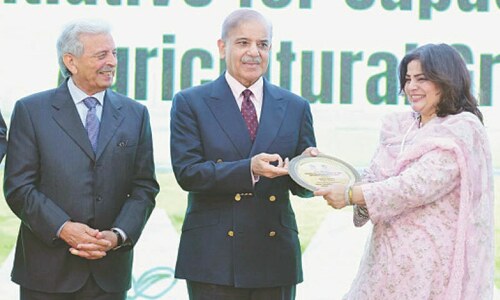FORTY years ago, a PIA plane flying from Karachi to Peshawar was hijacked by three activists of the Bhutto brothers’ Al Zulfikar Organisation. After the hanging of their father, Murtaza and Shahnawaz Bhutto decided the use of force to restore democracy was legitimate. They also wanted to avenge their father’s death.
The most remarkable AZO recruit was a very violent Karachiite, Salamullah Tipu. Soon after he reached Kabul in late 1980, Murtaza and Shahnawaz discussed Tipu’s idea of a hijack. Having gained Murtaza’s approval for the plan, Tipu slipped back into Pakistan while two young Punjabi Al Zulfikar members were shifted to Karachi to join him for the proposed hijack.
However, shortly before the hijack was due to occur, Murtaza called it off. He telephoned a Bhutto family member in London and asked for Tipu to be given the message: ‘stop doing that which you were going to do’. The message was passed on and the two Punjabis sent back to their homes.
Within a few days, however, Tipu was on the run after killing a Jamaat-i-Islami activist at Karachi University. He revived the hijack plan and found two young activists to join him. The trio boarded PK-326 to Peshawar, and shortly before it was due to land, seized the plane and diverted it to Kabul.
Questions remain about Murtaza Bhutto’s role in the 1981 hijacking.
Murtaza came to the tarmac of Kabul airport where, sitting in his car, he warmly congratulated all three hijackers describing them as heroes. He then gave Tipu a list of demands including the names of political prisoners in Pakistan who he wanted released. For his part Tipu showed the hostages’ ID documents to Murtaza who recognised the name of Major Tariq Rahim, a former Pakistani military officer-turned-diplomat who had previously been an aide-de-camp to Zulfikar Ali Bhutto. It was a position which meant Rahim had very close contact with the prime minister and had known Murtaza as a boy. But that did not count in his favour: he was a state official and Tipu accused him of having helped the army convict the PPP leader, an allegation for which there is no evidence whatsoever. On March 6, 1981, with Zia refusing to give in to the hijackers demands, Rahim was taken to the front of the plane, beaten, shot by Tipu and his body thrown out of the fuselage onto the tarmac.
Ever since the hijack in 1981 there has been controversy about Murtaza’s role in these events. Murtaza later said he had not ordered the hijack but when it happened, he accepted responsibility because the hijackers were members of his organisation. Given that he had told Tipu to call off the hijack that was partially true, although his account glided over the fact that he had earlier on endorsed the operation. There is then the question of what role Murtaza played in the murder of Tariq Rahim. Tipu later told Pakistani leftist Raja Anwar that he acted on Murtaza’s orders. But one AZO member, Akhtar Beg, who was in Kabul said Murtaza learnt about Rahim’s killing on the radio and was shocked by it. Having said that, Murtaza did not eschew the use of violence when the plane was in Kabul and provided the hijackers with a Kalashnikov — a weapon which changed the balance of power on board and made resistance by the hostages more difficult.
The hijacking was resolved after the plane went to Damascus where Tipu threatened to kill six American hostages. Zia relented, releasing 54 political prisoners. After the hijack, an increasingly arrogant Tipu settled in Kabul where eventually the Afghan authorities lost patience with his unceasingly violent behaviour. In 1984, Tipu was executed by a firing squad.
The other two hijackers moved to Libya where, initially, they were well looked after by Colonel Qadhafi. However, when Benazir Bhutto became prime minister in 1988 and made an official visit to Libya, the hijackers became a liability: they were an awkward reminder of the past differences between the army and the Bhutto family. To keep them out of the way, they were put in prison before Benazir arrived. They stayed behind bars for six years. One of the hijackers was later told by a Libyan intelligence official responsible that it was Benazir who asked for them to be imprisoned. Benazir’s supporters dismiss that claim out of hand.
Eventually, a Libyan judge ordered the hijackers’ release but then, after Col Qadhafi was killed in 2011 they fled the country, making hazardous journeys across the Mediterranean in small boats. They are now living in different locations in Europe.
A few months ago, I met one of the hijackers in a West European country where he is now seeking asylum. He said he deeply regrets what he did as a hot-headed young man. Murtaza Bhutto’s Al Zulfikar, he said, killed innocent people and achieved nothing. It’s hard to disagree with him.
The writer is author of The Bhutto Dynasty: The Struggle for Power in Pakistan.
Published in Dawn, June 1st, 2021











































